‘Nest protectors’, a campaign for resident shorebirds in Guatemala
By. CSFellow20 Varinia Sagastume
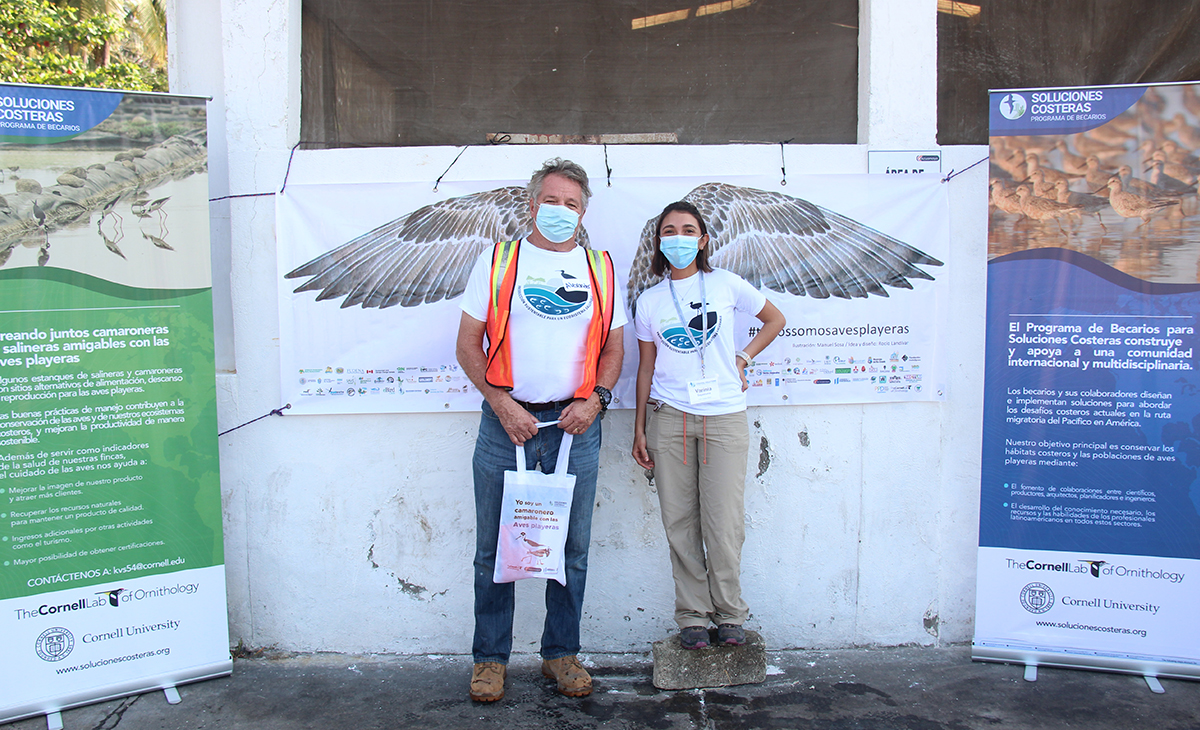
The Mayasal shrimp farm is a unique place. It is one of the few known waterbird nesting colonies on Guatemala’s Pacific coast and is the only known nesting site in the country for Roseate Spoonbills (Platalea ajaja) and White Ibis (Eudocimus albus). In addition, the first nest of Wilson’s Plover (Charadrius wilsonia) in Guatemala was reported on the farm.
For researchers of migratory shorebirds in the country, Mayasal has become a site-of-interest for the study of nesting waterbirds, and especially shorebirds. Its semi-intensive production system with unlined substrate allows the birds to feed and nest when the ponds are empty and wet.
Over the past two years, this shrimp farm has already shown its willingness to integrate the protection of migratory shorebirds with sustainable shrimp production by creating and implementing waterbird-friendly practices. In Guatemala, there are no guidelines for regulating the work of salt and shrimp farms. What is sought with the participation of producers is to design strategies to achieve a balance between production and conservation.
With this project we dedicated ourselves, along with my team and as a Fellow of the Coastal Solutions Program, to monitor migratory birds in this area, and to train farm workers about the role that shrimp farms play as an alternative habitat for resident and migratory birds, and the potential benefits they could bring to their business by acting as indicators of the health of the natural and productive ecosystems of the Guatemalan Pacific.
In 2019 I also had the opportunity to participate in conducting the first abundance and distribution monitoring of shorebirds in Guatemala. One of the highlights of the study was the relevance of salt and shrimp farms as alternative habitats for resident and migratory birds. These productive systems can have positive or negative effects on the abundance and diversity of shorebirds depending on the substrate management and water levels in the ponds. Water level is one of the most important attributes for shorebirds, as the ponds can be used as feeding sites for benthic organisms, depending on water depth. Likewise, the type of substrate and pond liners can also affect how birds interact with these spaces.
The participation of Mayasal workers in different training sessions was key to involve them in the next phase of the conservation project: the monitoring of nests within the boundaries of the farm. For their support in monitoring and protecting these important nesting sites, they are now recognized as “Nest Protectors”.
Citizen-generated data
In 2021, Grupo Quetzali, a Nicaraguan group dedicated to the protection of shorebirds and the conservation of key shorebird habitats, launched the “Report your nest” Program to document the importance of shrimp farms as nesting sites for both waterbirds and shorebirds.
With that idea in mind, we decided to replicate the initiative in Guatemala. Through this citizen science program, with the support of the Coastal Solutions Program and Acuamaya, we trained a total of 74 workers and invited them to voluntarily participate in the reporting of bird nests within the farm. The participation of the shrimp farm workers allowed the generation of valuable information about the reproductive ecology of these bird species in Guatemala and, at the same time, allowed local people to learn about the importance of protecting and preserving these vital spaces for birds.
The campaign began in 2022 with the training of 28 workers from the security team, who were asked to make regular rounds around the farm’s ponds and report nests during their rounds. Educating the farm’s workers not only led to an increase in participation, but also in the number of shorebird nests monitored.
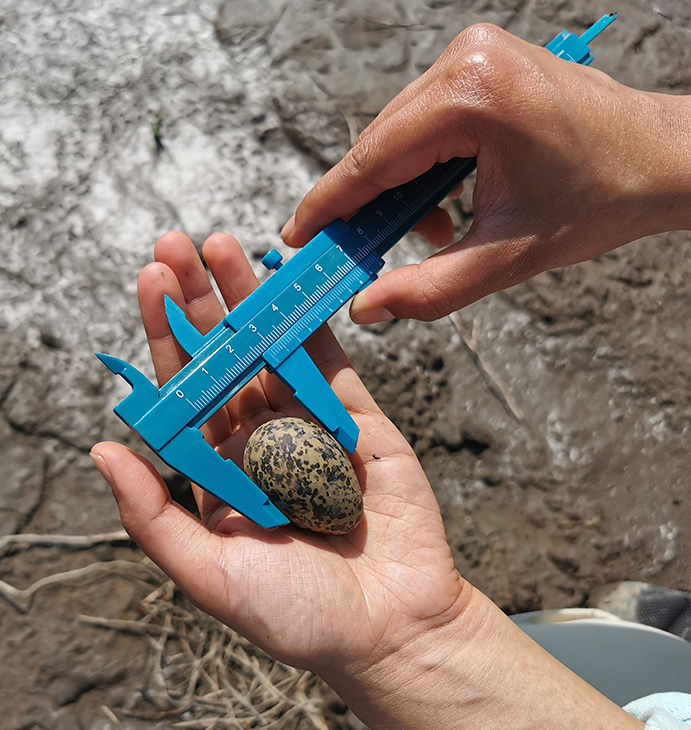
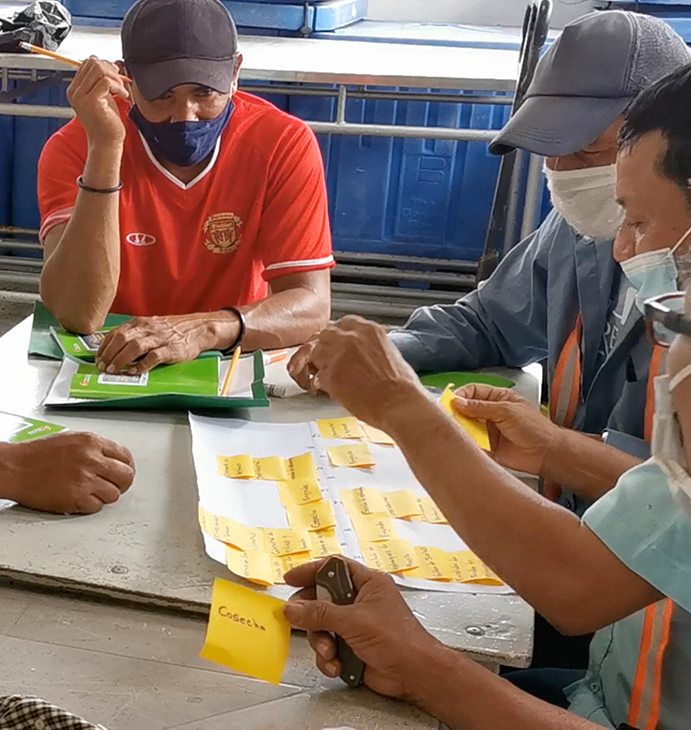
By 2021, when our team was the only one dedicated to recording nests, we reported a total of only 23 nests of Black-necked Stilts (Himantopus mexicanus), known locally as Soldadito. In 2022, when the ‘Report your Nest’ campaign began, twice as many nests of this species were reported (51 nests) and by 2023 a total of 56 nests were recorded.
So far in 2023, we have extended the training to the rest of the farm workers, with a total of 74 people. This resulted in doubling the number of participants and doubling the number of nests reported. During this time, a total of 114 nests were reported from 10 bird families, including doves, blackbirds, and swallows, among other species. All nests found by the workers were also entered into the Cornell Lab of Ornithology’sNestWatch citizen science platform.
Community organization
This was just the beginning of an exciting bird monitoring and conservation project, where citizen participation plays a key role. Through group chats or through maps located in the shrimp farm’s offices, anyone can report their nest observations and contribute to global scientific knowledge about bird ecology.
This campaign has been very successful in encouraging the participation of the workers of this shrimp farm in monitoring bird nests and promoting the protection of the nesting sites of these species in Guatemala. Now they are the ones who propose solutions and seek to take actions to help protect the birds’ nesting sites within their productive activities.
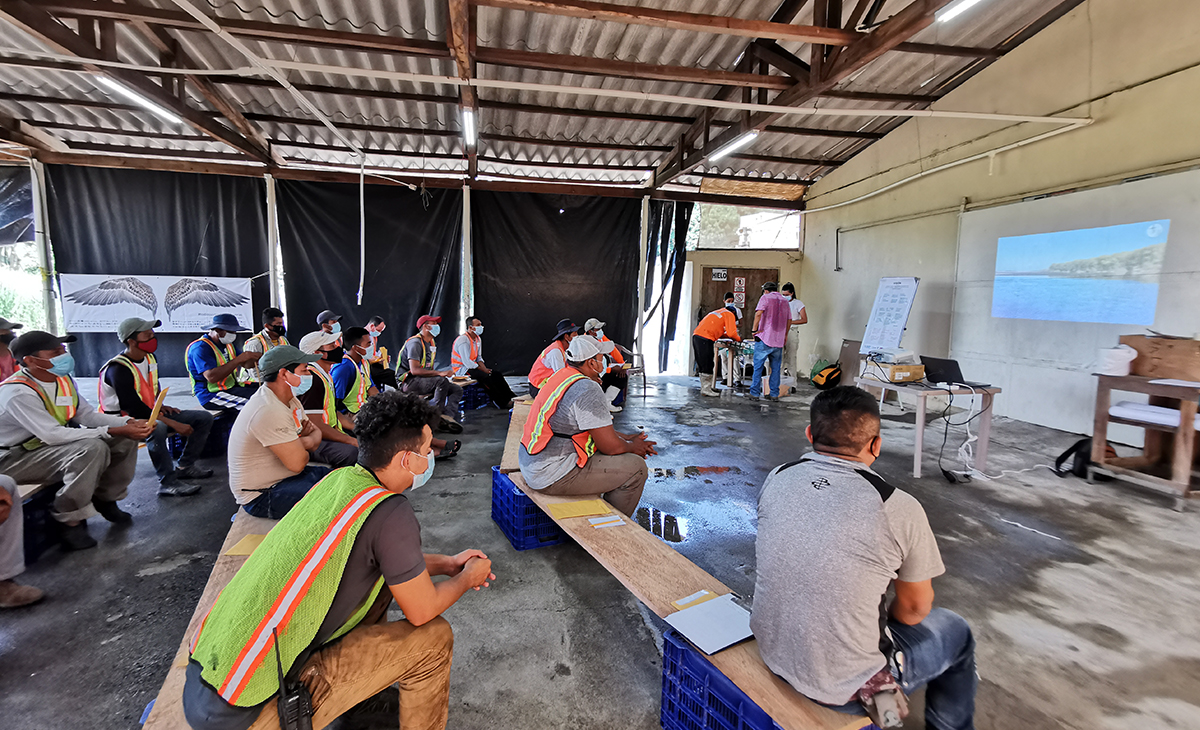
The importance of training and involving personnel in research and conservation projects has been demonstrated, which is why it is necessary to continue with the campaign and nest monitoring in the following years, in addition to increasing these efforts in other shrimp farms and countries.
Among many other sectors, fishing and aquaculture are important economic activities that produce food and resources, representative of the Pacific Flyway. The annual arrival of migratory birds is an indicator of a healthy aquaculture system, often providing a reliable refuge in a changing landscape. Together with scientific information, private sector collaborations, and campaigns such as ‘Report your Nest’, we can encourage the protection of nature and a more sustainable and bird-friendly production.
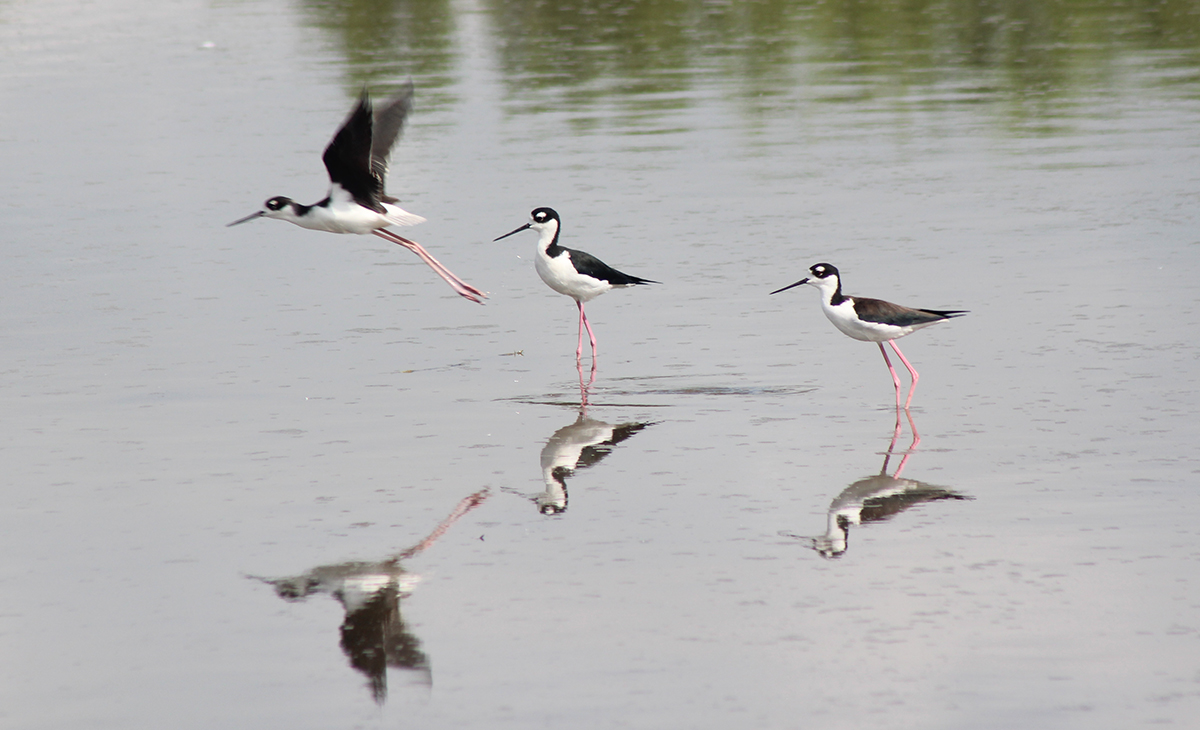
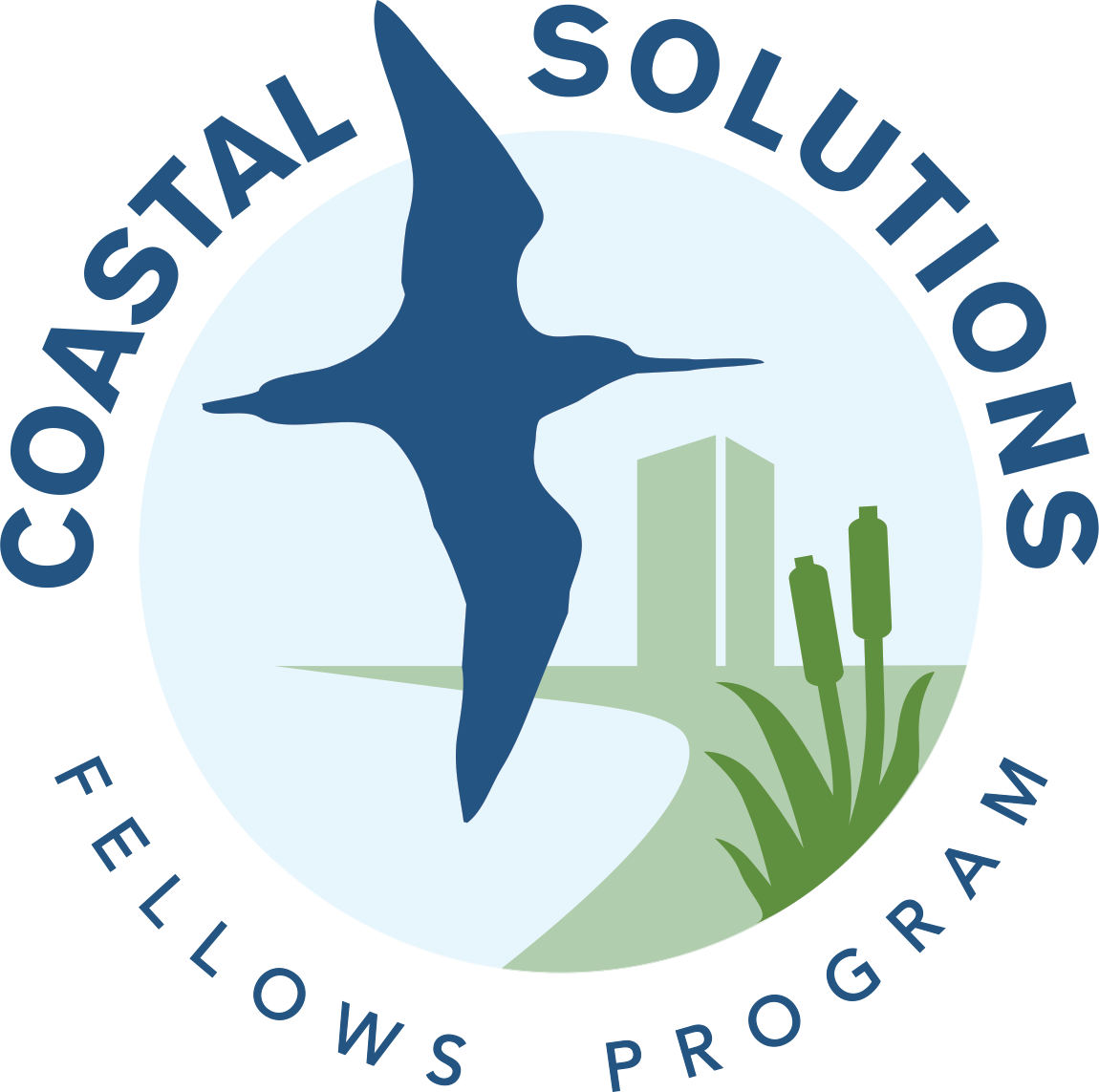
The Coastal Solutions Fellows Program builds and supports an international community to design and implement solutions that address coastal challenges across the Pacific Americas Flyway. Our main goal is to conserve coastal habitats and shorebird populations by building the knowledge, resources, and skills of Latin American professionals, and by fostering collaborations among multiple disciplines and sectors.
